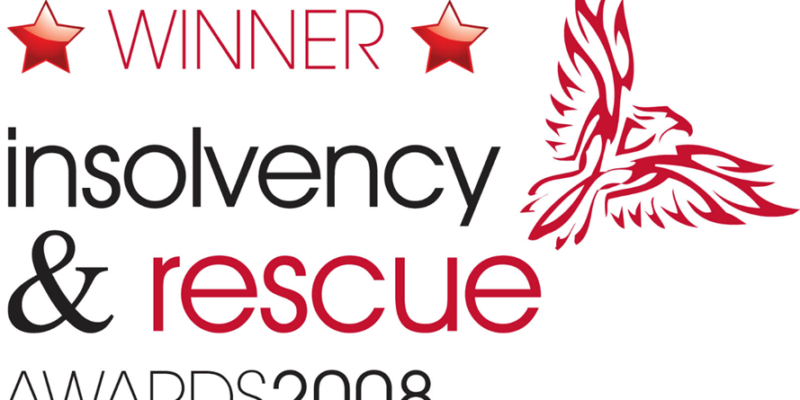- RT @mymoneyshrugged: The government breaks your leg, and hands you a crutch saying "see without me, you couldn't walk." #
- @bargainr What weeks do you need a FoF host for? in reply to bargainr #
- Awesome tagline: The coolest you'll look pooping your pants. Yay, @Huggies! #
- A textbook is not the real world. Not all business management professors understand marketing. #
- RT @thegoodhuman: Walden on work "spending best part of one's life earning money in order to enjoy (cont) http://tl.gd/2gugo6 #
A Well-Trained Husband
- Image by Getty Images via @daylife
I am so well-trained.
I was more than a bit wild when I was younger. For the most part, that ended when my son was born. When you procreate, it’s time to put the wild on a shelf and become a reliable provider. That’s just the way it is. Anybody who prioritizes the wild over the progeny needs to be forcibly sterilized and exiled before be sold for parts.
When my mother-in-law got a membership to Sam’s Club, she gave my wife the second card, so we effectively have a membership. For those who don’t know, Sam’s Club is a warehouse store that has some incredibly good deals and a lot of things that look like good deals because you are buying in bulk.
The thing I hate most about warehouse stores is the default accusation of theft when you leave. They require you to line up so the the person by the door can look at your receipt and pretend to count what’s in your cart while they are really scanning for the most-stolen items in the store and ignoring the rest. The only thing they really accomplish is making all of their customer feel like thieves.
I used to bypass the line and the checker and just leave. My wife got sick of the indignant screeches coming from the store as we left. Eventually she got me to stop.
Last night, I went back to pick up supplies for a fund-raiser I’m helping to organize on Sunday. I went with one of the other organizers, who had some personal shopping to do later. We checked out using his account and he paid, while I took the food home to keep until Sunday. Since he’ll be getting reimbursed for the food, he kept the receipt while I headed for the door. Anybody see the problem here?
When the receipt-checker challenged me, I docilely stepped to the side and called my friend to bring the receipt to the door. I hate the feeling of submitting to authority, especially when the authority is pretending to be customer service. I just calmly did what the door-cop told me, just like my wife wanted, even though she wasn’t there.
I hate warehouse stores.
Bonding Relationships
People can’t be happy in a vacuum. We are social creatures. Even the most anti-social among us needs some human contact. How can you make that contact happen in a meaningful way? How can you connect with other people beyond some superficial meaningless chatter?
According to Keith Ferrazzi in his book, Who’s got your back, there are four mindsets necessary to build lifelong relationships.
1. Generosity. This is your promise to help others succeed. If have a skill that can help someone you know, why not give them a hand? when you help others, you are building social capital, which is a currency that cannot be bought. Since our lives are not ledger books, you can’t do favors with repayment in mind, but it is reasonable to assume that the people ou help will want to help you some day.
An often overlooked generosity strategy is to give away 90% of everything. I’m not suggesting you give away 90% of your wealth or possessions. I’m suggesting you give away 90% of your personal product. Plan to give away 9 times more than your receive. This will not only keep your from being disappointed, but it will also leave you feeling very fulfilled.
2. Vulnerability. It is important to let down your guard and let the world see your humanity. It’s almost impossible to truly connect with someone who’s shields are always up: the guy who seems to be invulnerable and unapproachable. The people you spend time with know your flaw anyway. If you pretend they don’t exist, you are only fooling yourself. I have a lot of problem with this one. Letting down my guard is incredibly difficult, in almost every circumstance. It is far easier to be strong than to let myself be vulnerable.
3. Candor. Total honesty is vital to establishing–and maintaining– lifelong relationships. Even the white lies can destroy your connections. If you can lie about the little things, you are planting doubts on everything else you do and say. Who can trust you then? Lying is inappropriate in almost all conceivable cases. I was raised that a man’s word is his bond. Almost everything you have can be taken away from you, but not your honor. That can only be destroyed by you. Without it, what do you really have?
4. Accountability. You need to follow through on your promises. Be Mr. Reliable(or Mrs!). If you say you will do something, do it! Nothing builds resentment faster than disappointing the people who are counting on you. If you can’t meet a commitment, let the soon-to-be-let-down know as early as possible, so other plans can be made. If you have a hard time keeping promises, then make fewer of them.
If you embrace these principles, you will be well on your way to building–and keeping–strong, satisfying relationships that benefit everyone.
How do you build your relationships?
You’re not alone: Help with Bankruptcy & Debt
 Frequently regarded as an indication of personal failure, bankruptcy is still today widely considered a highly sensitive topic. Many will even feel uneasy speaking about their debt problems with close relatives and friends. If you, too, are facing serious debt issues and are in need of help, rest assured you are not the only one afraid of sliding into bankruptcy. In fact, thousands of households in the UK are threateningly close to insolvency and most are experiencing the exact same feelings of shame and despair. This perfectly understandable reaction has, meanwhile, unfortunately overshadowed the fact that there are hands-on practical steps especially designed to help you resolve your debt situation.
Frequently regarded as an indication of personal failure, bankruptcy is still today widely considered a highly sensitive topic. Many will even feel uneasy speaking about their debt problems with close relatives and friends. If you, too, are facing serious debt issues and are in need of help, rest assured you are not the only one afraid of sliding into bankruptcy. In fact, thousands of households in the UK are threateningly close to insolvency and most are experiencing the exact same feelings of shame and despair. This perfectly understandable reaction has, meanwhile, unfortunately overshadowed the fact that there are hands-on practical steps especially designed to help you resolve your debt situation.
There is a good reason why addressing the issue of bankruptcy has an urgent ring to it. Recent statistics indicate a steady rise of individual company insolvencies in the UK, particularly since the 1990s. According to the British Insolvency Service, the rate of bankruptcy on an individual level has risen from a total of 24,441 in 1997 to staggering 106,645 in 2007 in England and Wales. Alarmingly, the peak doesn’t seem to have been reached yet. As respected online-service ‘This is Money’ reports, ‘record numbers of people were declared insolvent in England and Wales’ in 2010, further noting that ‘an all-time high of 135,089 people were declared insolvent in 2010—0.7% up on the total for 2009.’ As you can gather from these numbers, you are certainly not alone with your debt problems: Around 140,000 adults are facing bankruptcy as a direct consequence of mishandling their debt issues, which translates to 385 new cases per day. It has already been pointed out that ‘the number of victims will be enough to fill both the London 2012 Olympic stadium and the Emirates Stadium.’
So, if you’re facing bankruptcy, there’s no need to feel ashamed. By taking an active stance and addressing your debt issues, you may even be able to avert insolvency altogether. With years of experience and several distinctions to our credit, the Debt Advisory Line have established themselves as leading experts in the field of debt management. We’ve already helped thousands of individuals and households who thought bankruptcy was their only option. Settling debt issues is our forte – and you shouldn’t settle with anything less.
This post brought to you by Debt Advisory Line.
A Bit of Christmas Magic

On Thursday, my wife left with my kids and dog. I had to work all day on Friday, so she took off to get an early start on Christmas at my brother’s house. I followed Saturday morning.
Two nights with no whining, and a bed to myself.
Friday afternoon, my wife called to tell me about her day.
When she got to my brother’s, she took her tailgate down to get the suitcases out of the back of her truck. She left the plastic container full of presents in her truck, since we’d be exchanging presents at my parent’s house nearby.
Friday morning, she left to feed her shopping addiction for a few hours.
When she got to the giant store that had our new car seats on sale, she discovered that she had neglected to put the tailgate back up on the truck when she unpacked. This was the box that held most of our budgeting overspend.
Gone.
When she called me, she was retracing her steps, hoping to find the box.
I was upset.
She didn’t find the box on the side of the road.
Gone.
Normally, this would be a strong object lesson in the futility of rampant consumerism. A lot of zen-like “the stuff you own is fleeting”, amidst the wailing of children who are discovering that their Christmas presents evaporated in a ditch somewhere.
Somebody found the box. I don’t know who.
Whoever it was, opened the box and saw the tears of small children inside. She read the name tags and, amazingly, recognized enough of the first names to place the family.
Keep in mind that I live more than 100 miles away, and moved out of the town 15 years ago.
This anonymous Christmas elf brought the box into a nearby gas station, and asked them to call my parents, since the names on the tags matched those of my parents’ grandchildren.
Everything was still in the box.
Everything was still intact.
Anonymous Christmas Elf saved Christmas for my family
.
Can Bad Credit Cost You Your Job?
Did you know that having a bad credit history could cost you your job? An increasing number of American employers have turned to running credit checks to screen job

applicants. Some companies even evaluate existing employees on a regular basis by checking their credit reports. If you have outstanding debts, you might consider getting one of those credit cards for bad credit to clean up your report before you apply for your dream job.
Not all companies run your credit history when you apply for a position. However, if you’re applying for a job that entails working with money or valuables, it’s a safe bet that they’ll be checking your credit history. Financial institutions, brokerage companies and jewelry manufacturers all run credit checks, as do hotels, accounting firms, human resource departments and government agencies.
Companies run credit checks because they want to hire employees who won’t be tempted to embezzle company funds to pay off large debts. Some companies fear that employees who carry large debt loads are susceptible to blackmail or bribery. The federal government carries this concern even further, indicating that citizens who owe large debts are considered national security risks.
Many companies feel that your credit report gives them a sneak peak at your true character. Having a good credit history indicates that you are a responsible person with excellent character. Having a bad credit history means that you are an unreliable person of poor character. True or not and fairly or not, this is the current belief running throughout company hiring departments.
Unfortunately, you can’t relax about your credit report even after you’ve been hired for a position. Once you’ve given a company written permission to check your credit report, they can recheck it at a later date. Government and financial organizations often run periodic credit checks on all of their employees. Some companies only recheck your credit history if you are up for a promotion. It’s a good idea, therefore, to keep your credit history squeaky clean.
Keep in mind that having a couple of late payments probably won’t kill your chances of employment or promotion. Most employers look for the really big issues, such as high credit card balances, defaulted student loans, repossessions and foreclosures. Some companies also look for charge-offs and consistent late payments as well.
Steps You Can Take
Financial experts suggest checking your credit report before you start your job search. Read your credit report carefully and make sure that all of the information is accurate. If your report contains incorrect details or any unauthorized charges, dispute these errors immediately and have them corrected to raise your credit score.
If you have a host of unpaid bills, find a way to settle those debts to improve your credit history before applying for jobs. Many people turn to credit cards for bad credit consumers. These cards allow you to consolidate all of your debts into a single debt. Just don’t forget to make the payments on this card.
Be upfront with potential employers about any negative marks on your credit history. Just tell them that you have had past issues with your credit and are now working to clear up all of your debt. There’s no need to go into explicit detail.
Once you have a job, be sure that you check your credit report at least every six months to ensure it contains only correct information. Pay all of your creditors on time. Never take out any new lines of credit unless you are absolutely positive that you can pay it back in a timely manner.
Post by Moneysupermarket




